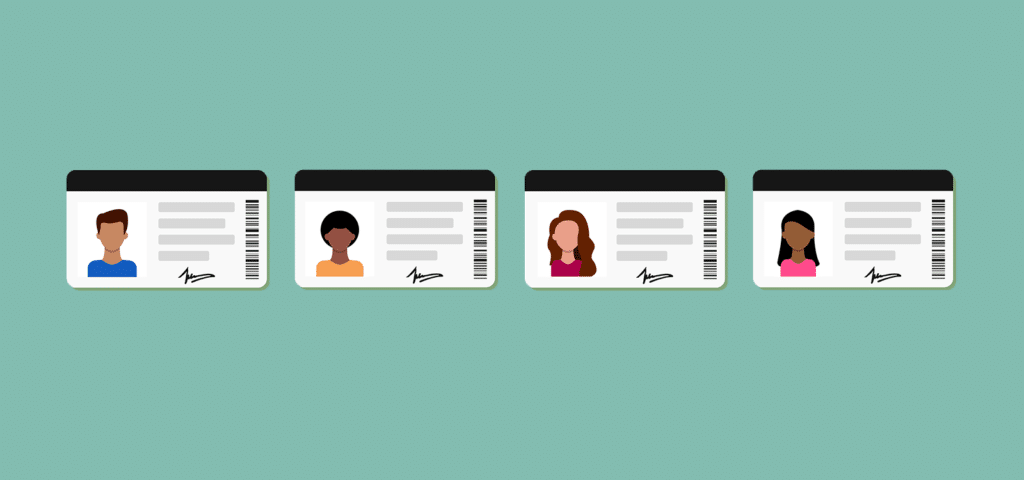
The State of Voter ID in America in 2022
America’s voter ID law landscape is changing almost daily as we race toward the 2022 midterm elections. In state after state, legislators are proposing new or tougher ID rules for voters.
It’s part of a larger trend. According to the Brennan Center, between January 1 and December 7, 2021, at least 19 states passed 34 laws restricting access to voting. More than 440 bills with provisions that impede voting access were introduced in 49 states in the 2021 legislative sessions.
More than 25 million voting-age Americans do not have a government-issued photo ID. Only two types of IDs are common to all 36 states with voter ID laws: a current driver’s license or state ID in your state.
Plus, there’s confusion in every state and DC – compounded by REAL ID, even though REAL ID, per se, is not required to vote. This confusion leads to intimidation, which is inherent in these complicated, expensive and time-consuming laws. Indeed, some new laws actually enhance that intimidation because they give partisan poll watchers virtually unbridled power while simultaneously constraining election officials from controlling inappropriate behavior.
Bottom line – based on our on-the-ground experience, corroborated by several reputable studies – confusion and intimidation deter many millions more from voting even though they have a valid ID.
As part of its mission to provide voter ID education and assistance, VoteRiders constantly tracks laws and bills dealing with identification to vote. So, here’s the post-2020 dynamic:
In 2021, seven states enacted eight laws that impose new or harsher voter ID requirements: Arkansas, Florida, Georgia, Iowa, Montana, Texas, and Wyoming.
In 2022, we’re also preparing for new or stricter voter ID measures that are currently pending in 21 states. Note that in early January when we shared a presentation for our volunteers, there were seven: Arizona, Michigan, Missouri, Nebraska, North Carolina, Ohio and Pennsylvania.
Michigan, Pennsylvania and Wisconsin – where legislators passed restrictive voting bills in 2021 that were vetoed by the governors – are holding gubernatorial elections this year.
While VoteRiders works with almost 900 partner organizations across the nation, the voter ID states with highly competitive federal elections that we’re targeting this year are: Arizona, Florida, Georgia, Michigan, Pennsylvania, Texas and Wisconsin. We’re also very active in North Carolina, where the law is on hold while being reviewed by the courts.
Voters are feeling the impact of these laws right now.
According to the Associated Press, in addition to turning down a huge percentage of vote-by-mail applications, Texas rejected nearly 23,000 mail ballots (roughly 13% across 187 counties) during the nation’s first primary this year on March 1. “While historical primary comparisons are lacking, the double-digit rejection rate would be far beyond what is typical in a general election, when experts say anything above 2% is usually cause for attention,” the AP reported.
Why such an unprecedented number of rejected applications and ballots? Because of a new requirement that voters must provide the ID or Social Security number they had used to register to vote. Many did not remember which number they’d used and provided the wrong one, or they didn’t know of the new requirement at all. “It took me three tries and 28 days but I got my ballot and I voted,” a determined 75-year-old Houston voter told the AP.
At its core, VoteRiders’ focus is on voter ID education and assistance, based on citizen helping citizen. Given that VoteRiders is nonpartisan, we do not take positions for or against voter ID. Our goal is to ensure that voters are prepared and confident they can comply with their state’s law.
Our most important takeaway is that NOW is the time to act. In the nearly 10 years since I founded VoteRiders, I’ve learned that procrastination is not the voter’s friend when it comes to voter ID.
Under normal circumstances, it can take a long time for governmental agencies to issue a certified copy of a birth certificate or a marriage license. With COVID-19, there are ongoing restrictions at the DMV and other ID-issuing offices as well as state offices that issue vital papers. In California, it can take six months to obtain a certified copy of your birth certificate.
So, please do not wait to make sure you have the ID you need to vote in this year’s crucial midterm elections. If you or someone you know needs help getting an ID, VoteRiders is here to help.
Kathleen Unger is VoteRiders’ Founder, President, and Board Chair
